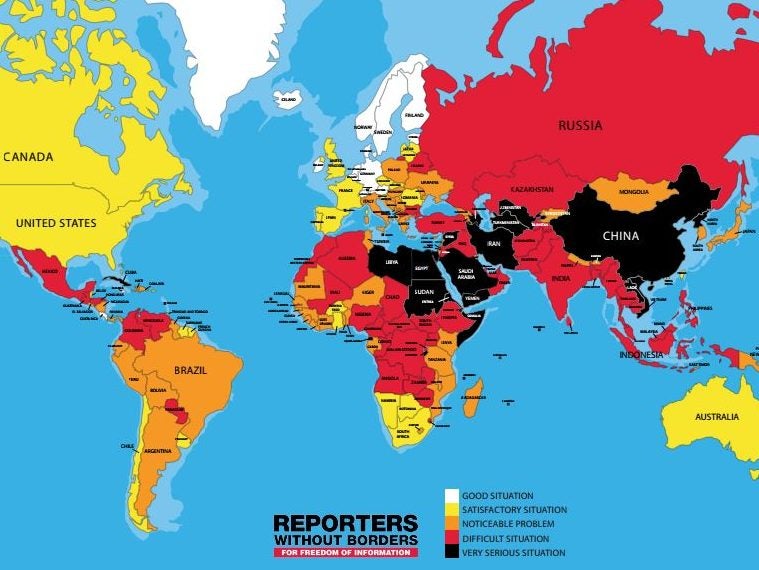
It is perhaps no coincidence that countries with the best record for press freedom are also the richest and most successful.
On the Reporters Without Borders World Press Freedom Index map those at the top of the table are coloured white and include: Norway, Sweden, Germany, Holland and Denmark.
It should be a source of shame and sadness to our elected politicians that the UK is coloured yellow on the map and ranks alongside Trump’s America on the ‘could do better’ list at number 40.
The good news is that unlike the economy, Brexit and the NHS – the constraints to freedom of speech which are holding Britain back could be solved relatively easily. With general election party manifestos yet to be written, here a few ideas on how to give the UK back its rightful place as a bastion of press freedom:
- Pass a law to guarantee protection from state surveillance and punishment for journalists doing their job lawfully and whistleblowers. This seems crashingly obvious to anyone who works in journalism but appears to baffle our elected politicians.
The Investigatory Powers Act sets out powers for the state to use every trick in the book to grab the communications data of suspected criminals and terrorists. That is is fine, it just needs proper safeguards to ensure that these powers are not abused again (as they have been in the past) to target and inhibit journalists who are simply doing their job.
- Similarly the Law Commission’s proposal for an Espionage Act appears to make it possible to jail journalists for receiving leaked government information. Journalists and whistleblowers acting in the public interest need clear protection under the law.
- The Government is still mulling whether to enact Section 40 of the Crime and Courts Act. Reporters Without Borders rightly notes that its cost-shifting measures are a concern by forcing non-regulated publishers to pay both sides’ costs in libel cases that they win. The UK would instantly start to move back up the press freedom league of this was repealed.
- Finally, and most easily, the Home Office needs to return the passport of Syrian journalist Zaina Erhaim which was seized at Heathrow seven months ago.
By acting on the instructions of the Syrian Government (178 out of 180 in the press freedom rankings) the UK has became complicit in Assad’s attempt to silence his critics. Syria does not want its former citizens travelling around the world telling the truth about the abuses that have happened in their country. As Roy Greenslade notes on his latest IPSO blog this is outrageous.
And it is by far the easiest press freedom abuse to remedy by simply returning this brave journalists’ travel documents to her and enabling her to again travel around the world to carry out her important work.
Email pged@pressgazette.co.uk to point out mistakes, provide story tips or send in a letter for publication on our "Letters Page" blog

